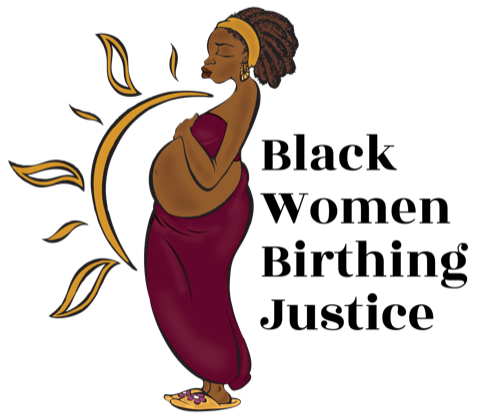A Call to Action to Black Birth Workers
“So, how does it feel to be a mom?!” After you have a baby, particularly if you’re a first-time mother, you get asked some variation of that question a lot. While the easy answers are adequate for conversation sake (It’s great. I love it. Tiring, but awesome…), the truth of the matter is, there is no quick way to answer that question. I could use every word in my vocabulary and still not be able to explain thoroughly what is at once the most rewarding and terrifying experience of my life. I wouldn’t have time in the course of an average phone call or text message to expound on the moment I looked into my daughter’s eyes and, for once, everything in life made perfect sense. Time slowed down, colors became brighter, music more enchanting, love felt so much deeper. No, there’s no way to reveal just how fervently I pray for her, no way to make another understand how the love I feel for this tiny person has consumed my entire existence and how my heart swells so for her that it’s hard to even remember life before she arrived. Every day is now a waking dream; her slobbery kisses and sweet laugh punctuate the moments and her smile melts me into a puddle every single time. But for the most part, I just stick to “It’s wonderful,” and let that suffice.
I began my formal doula training after I found out I was pregnant with my daughter, but my viewpoints on pregnancy and birth began taking shape many years before I would ever conceive. When I was in junior high school, I came across an ad for a birthing center in a local magazine and I can still remember my imagination running wild when I read the words water birth. Years would pass before I fully understood what a water birth was (or even a birthing center, for that matter), but I count it as a blessing that my mind was awakened to these new ideas at an early age. My curiosity grew as time went on and that eventually lead me down the path of not only exploring a myriad options when it came time to have my baby, but of becoming a birth worker myself.
Sankofa is a word in the language of the Akan people of West Africa that translates as "reach back and get it" (san - to return; ko - to go; fa - to fetch, to seek and take). I started Sankofa Mama Doula Services in my hometown Houston, Texas to reconcile traditional African cultural values regarding pregnancy and birth with the digital world in which we live today. In our quest to incorporate technology and make efficiency the goal, we omit some of the reverence and ritual that were once a part of the process. My goal is to offer a holistic approach to pregnancy, labor and postpartum support that honors the spiritual journey of a wombman while providing the physical support she needs, as well. Mainstream birth culture in the United States is focused on welcoming baby to the world. In my practice, the perspective is widened to recognize that another birth is happening simultaneously, that of the mother. One of the most gratifying aspects of the job, for me, is bearing witness to the moment baby comes earthside, and my client crosses the threshold from wombman-in-waiting into the sisterhood of mamas.
Before I am a doula, I am a Black woman living in America. I can walk away from this profession today, but, I will still be a Black woman living in America. The day to day struggles of my sisters in this country resonate with me, because they are the stories of my family, friends and even my own life story. The isms and schisms that got us to this point do not need to be recounted here. Instead, I am issuing a call to action to my fellow Black birth workers. The time is now for us to join together to achieve our goals as sisters, not rivals. We can be louder and stronger together than we could ever be as a single voice/person/doula/ midwife/mother/sister/friend. Black Women Birthing Justice is evidence of what can be achieved when we join forces with a focus on affecting positive change. There is power in our unity. We were once all we had in this country. Our opportunities and allies have become increasingly more diverse and ample, but still, we should not cast old friends aside for new ones. As we approach 2016, let us do so with a renewed sense of inner-connectedness, setting aside rivalry and selfish ambition in favor of progress and attainment for us all.
Sierra McClain-Henry trained under Shannon Stellhorn, CPM LM (A Sacred Journey Doula Certification Program). She is the founder of Sankofa Mama Doula Services and resides in the Greater Houston area where she serves wombmen throughout the region.
Email: sankofamama@gmail.com
Website: www.sankofamamadoula.com
Facebook: Facebook.com/sankofamamadoula
Birthing Justice: Black Women, Pregnancy and Childbirth, edited by Julia Chinyere Oparah and Alicia D. Bonaparte is now available. This book will change forever the way you think about childbirth!
